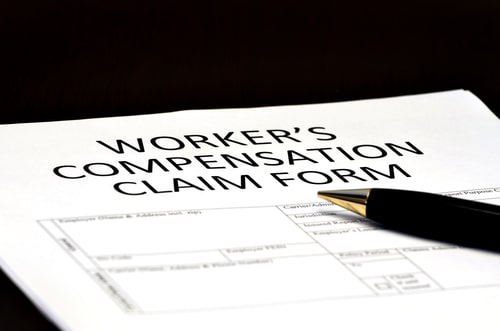A Guide to Filing for Workers' Compensation in Illinois
 Whether you sustained a work-related injury or developed an illness, you may be eligible for worker’s compensation benefits in Illinois. The state law requires every employer to pay for worker’s compensation insurance. Yet, there may be instances where employers deny claims. A workers’ compensation lawyer can help you file your claim and build an evidence-based case for contested cases. The following is a brief overview of the process.
Whether you sustained a work-related injury or developed an illness, you may be eligible for worker’s compensation benefits in Illinois. The state law requires every employer to pay for worker’s compensation insurance. Yet, there may be instances where employers deny claims. A workers’ compensation lawyer can help you file your claim and build an evidence-based case for contested cases. The following is a brief overview of the process.
Step 1: Inform Your Employer
The Illinois Workers’ Compensation Act states that employees must inform employers about a job–related injury or illness as soon as possible. You should submit a written report to your employer with a brief description of the incident, including the date and time.
You may receive coverage in the following situations:
- Slip and fall accidents on the job site
- Repetitive stress injury that leads to chronic medical conditions like back pain or carpal tunnel syndrome
- If a traumatic accident on the work site results in permanent disability
- Asbestos/chemical radiation exposure
After the incident, you have a maximum of 45 days to notify your employer. The court exempts you from this rule if your job-related injury or illness develops over time. The timeline for filing claims varies in such situations.
Step 2: Wait for Your Employer to Respond to the Claim
The Illinois state law orders employers to handle compensation requests “promptly, officially, and fairly.” Your employers should speak to their insurers and provide a list of preferred healthcare providers in the compensation plan.
Employers must also provide compensation for lost wages if you miss three or more days of work because of your injury/illness.
Moreover, employers must also file an accident report with the Illinois Workers’ Compensation Commission (IWCC) within 30 days of receiving your notice. This allows the Commission to keep track of your insurance claims and the coverage you receive.
However, things are not always straightforward. If your employer declines your request or offers insufficient coverage, you may approach the IWCC for help.
Step 3: Take Legal Action
You may file an application with IWCC if your employer does not cooperate and prevents you from receiving medical coverage after a workplace injury or illness. You can also contact them if you need to adjust your compensation plan to receive long-term benefits.
Fill out the relevant application form as accurately as possible and attach a certificate of service with your form as proof that you mailed it. Send the official documents to the Commission and employer.
Typically, employees have three years to file claims and ask for a payout.
The IWCC may require detailed reports of the incident, medical documentation, and evidence that support your claims. You may need to consult a legal advisor to handle the paperwork and represent you during negotiations.
Contact Lake County Workers' Compensation Lawyers Today
The State of Illinois grants every worker an equal right to receive medical coverage and compensation for lost wages. You can ask the court to intervene if an employer declines your insurance claims. Contact Lake County workers’ compensation attorneys at Salvi & Maher, LLP by dialing 847-662-3303 for consultation.
Sources
https://www.ilga.gov/legislation/ilcs/ilcs3.asp?ActID=2430
Contact a Lake County Vehicle Accident Attorney Who is Ready to Help You
If you or a member of your family has been injured in a motor vehicle accident, contact our office. Call 847-662-3303 to set up a free initial consultation at one of our four convenient locations. There is no risk because we only collect fees if you collect compensation. With offices in Libertyville, Waukegan, Richmond, and Chicago, we represent clients in Lake County, Cook County, DuPage County, and McHenry County.












